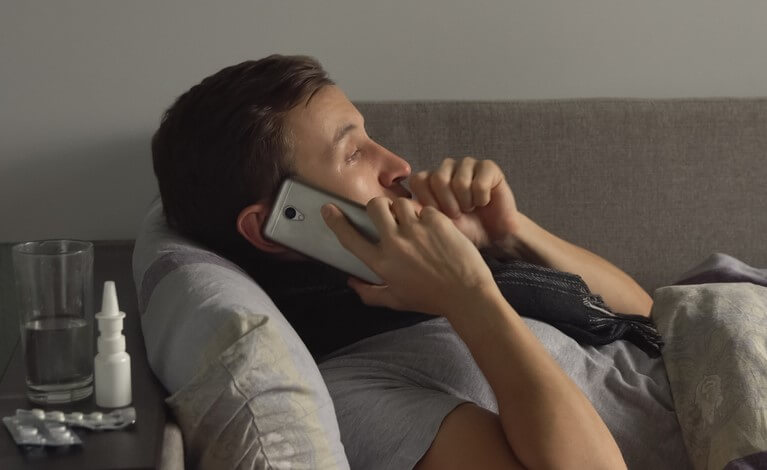
If you’ve watched or read the news much lately, you’ve probably heard about the telemedicine coronavirus response. There has been a spike in telemedicine visits because of the coronavirus pandemic, and that should continue to grow in the coming months due to the $8.3 billion emergency coronavirus response bill. This bill loosened many of the restrictions that Medicare patients face when seeking telemedicine visits. Learn more about the telemedicine coronavirus response.
What Is Telemedicine?
Telemedicine is the process of connecting health care providers and patients through telecommunications technology. Doctors and nurses and evaluate, diagnose, and even treat patients without seeing them in person.
It’s a pretty straightforward process. You will request a telemedicine consultation with your health care provider. Then, you will access an online account or call a toll-free number for your visit. Typically, telemedicine requires video capability, but due to the ease in restrictions, you can use this service, even if you don’t have video access.
During the visit, you will go over your symptoms, and your doctor will evaluate you. If it’s a wellness check, your doctor can determine if your medicine needs adjustments based on your symptoms. Your doctor can also call in medication for you to pick up.
If you’re worried that you have coronavirus, your telemedicine coronavirus doctor will evaluate you and make recommendations. That might include a 14-day quarantine or an emergency room visit.
How Telemedicine Reduces Health Care Costs
Telemedicine has proven to reduce health care costs across the board. A study found that telemedicine saves a medical facility an average of $20,841 a year, although it’s much higher in some states. For example, hospitals in California save an estimated $104,564 by using telemedicine.
Telemedicine allows medical facilities to deliver low-cost, high-quality care. Telemedicine also reduces emergency room visits and hospitalizations.

Telemedicine During a Pandemic — Why It’s More Important Now Than Ever Before
Community spread is a cause for concern with coronavirus. This disease is highly contagious, so social distancing measures are in place. This has created a need for doctors to turn to telemedicine to screen patients who might have the virus, as well as to treat patients who are the most vulnerable for contracting it. To understand this, look at some telemedicine examples.
For example, assume Bob has symptoms of coronavirus. Instead of going to the doctor and possibly affecting others, he uses coronavirus and telemedicine procedures. He has an online consultation, and his doctor tells him to self-quarantine.
Then, assume that Joe is 72 years old, making him vulnerable to dying from coronavirus. Joe has a wellness check scheduled, but he knows going to a medical facility could expose him to the disease. He calls a telemedicine coronavirus doctor and has his wellness check over the phone. He stays safe while getting medical care.
Cities and states are going on lockdown around the country, so telemedicine will likely become even more important in the coming weeks. Soon, it might be the only option for those who require anything except for emergency care.
Coronavirus and Telemedicine — A Way to Stay Safe
The telemedicine coronavirus response is in place to keep you safe. If you think you have symptoms of coronavirus or if you have a wellness check, consider using telemedicine.
Did you know that Freeway Insurance offers telemedicine coverage? Check out our options and call us today, you can easily purchase coverage over the phone and use it the same day.



